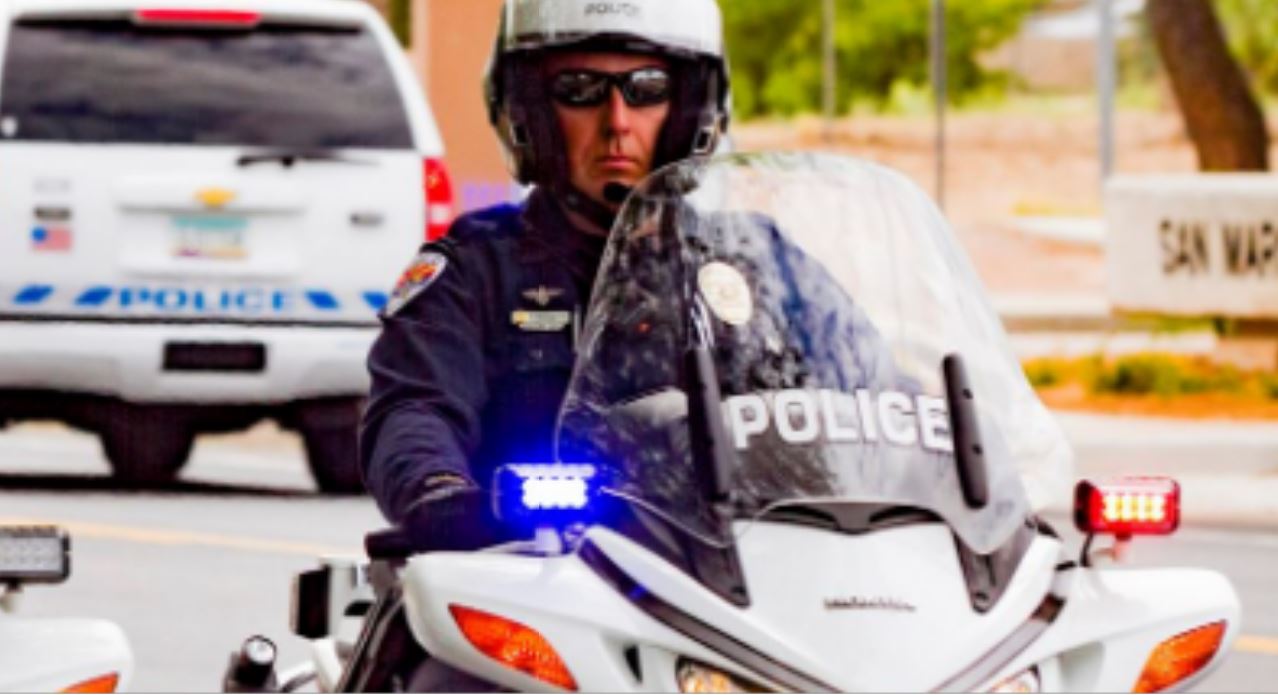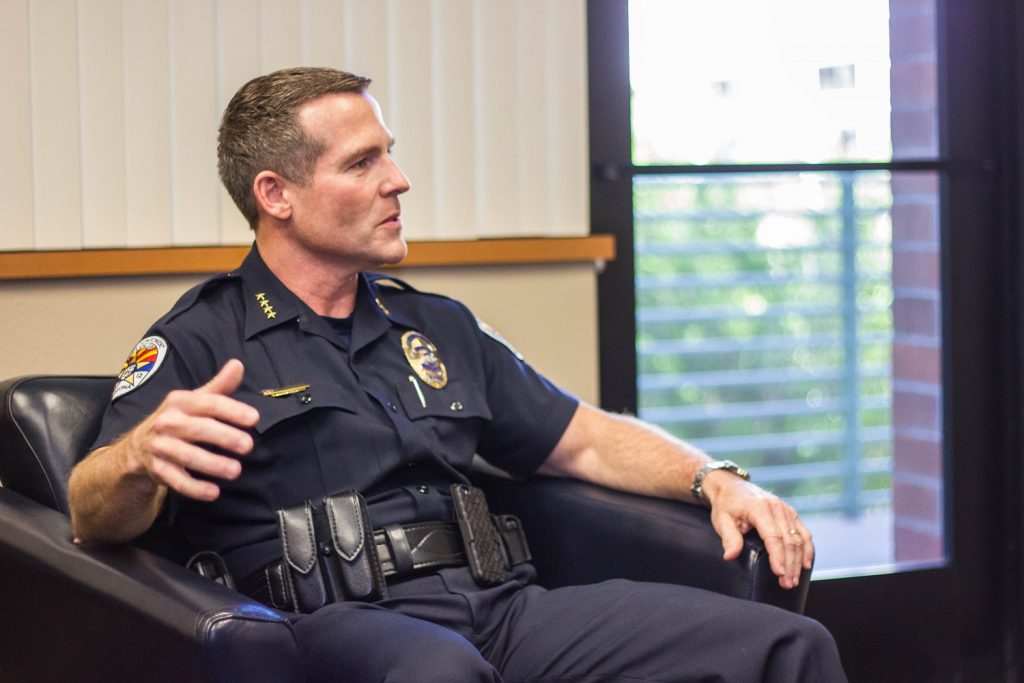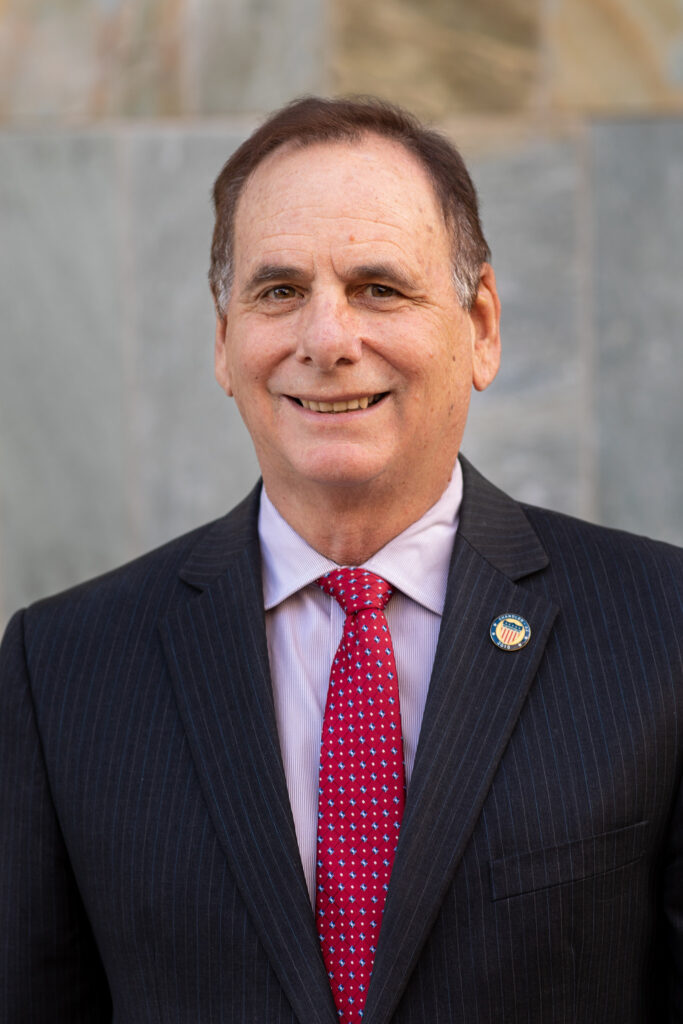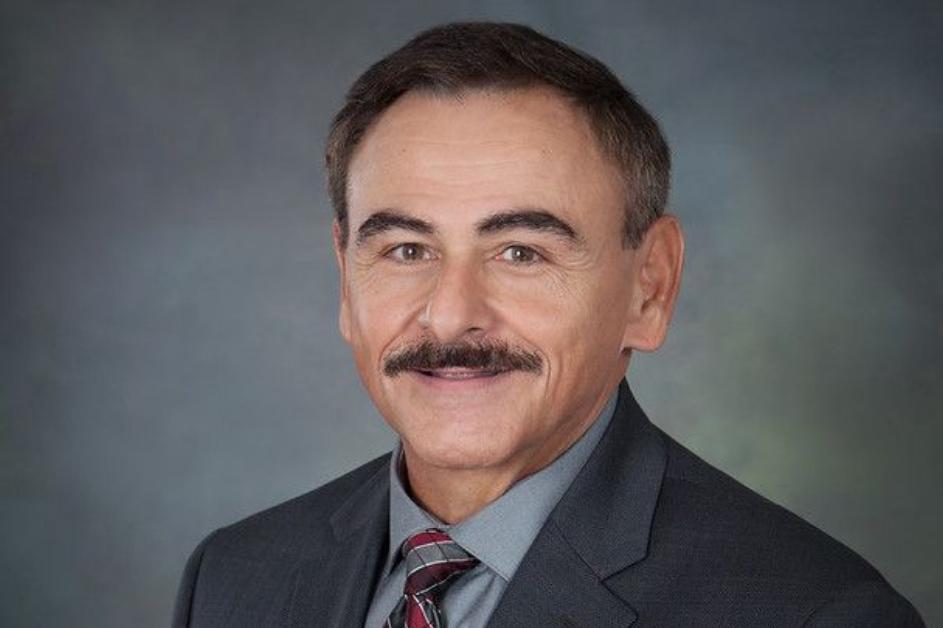
Sean Duggan made it clear that his Police Department needs more people and resources because the model it uses to keep the city among the safest in the country for its population size is not sustainable.
The Chandler chief has found ways to make a depleted force appear larger than it really is, but he says the department is short-handed and consequently too reliant on overtime.
“These people are tired,” Duggan said of officers. “It’s almost impossible to get people to come to work on their days off.
“This is not a money issue any longer. We’re pressing people to work. It’s been an exhausting year.”
Chandler City Council heard him. For fiscal year 2021-22, it plans to give Duggan just about everything he asked for, including 27 new officers, during his detailed state-of-the- police presentation in April.

The Council on May 27 adopted a $1 billion 2021-22 Tentative Budget, which includes $90 million for police, up from the $86.5 million for police in the adopted budget for the current fiscal year.
A public hearing and final adoption of the city’s 2021-22 budget are June 10 in Council Chambers. The budget becomes effective July 1.
Mayor Kevin Hartke said that not only must immediate needs be addressed but that the city must develop a plan to keep the police properly staffed and equipped moving forward.
“In conversations I’ve had with council members, I’ve found strong commitment to public safety and I expect to see that reflected this year as we go through budget decisions,” Hartke said.
Duggan also cited a need for task forces to address an increase in shootings and sexual assaults, a bike or hybrid-response team to make officers more nimble, a mental-health task force that can train other officers, Police Department information technology, support services and forensics.
“We are one of the safest cities for number of sworn (officers),” Councilmember René Lopez said. “I had a conversation with a council member in a city in North Carolina and he did not believe me about our staffing numbers versus our crime rate. He said it’s impossible. He thought I was making it up.”

During its annual budget-development process, the City Council reviewed a five-year staffing plan for the Police Department that would add 67 sworn and civilian positions. Of those, 27 positions – 12 new and 15 “overfill” –are proposed for the coming fiscal year, funded through a combination of Chandler’s General Fund and anticipated American Rescue Plan Act funds.
Currently, the Police Department has 505 sworn and civilian budgeted positions and 15 overfill sworn positions.
Duggan, during his presentation, pointed out that Police Department staffing is the same today as it was nearly 13 years ago despite a significant population increase.
He said that the complexities of policing, with new types of crimes that did not exist a few years ago, also have stretched the department thin. Consequently, officers have been moved to patrol, the department’s most critical function, from other areas, in turn leaving it short elsewhere.
Duggan added that more than 80 officers are nearing retirement.
Duggan said that serious crimes, such as rape, murder, burglary, arson, theft and assault, are down.
“Overall Chandler had 20.5 Part 1 crimes per 1,000 residents last year, the lowest recorded in the history of Chandler,” Duggan said. “The crime index, or volume of crime, was just under 5,500 last year. The last year that Chandler experienced 5,500 crimes was in 1987 when the population was about 80,000. Today, with almost 200,000 more people, we are experiencing roughly the same volume of crime.”
The overwhelming majority of crime in Chandler is property crime and other issues not measured by traditional tracking and reporting of crimes. Among those is homelessness.
“Last year, our officers responded to more than 1,300 calls for service involving homelessness,” Duggan said. “Remember, being homeless is not a crime, but the problem is there are no other resources to call. The reality today is that police are the first contact for homelessness.”
Police also are first responders to mental-health issues.
“We had almost 1,000 mental-health calls for service last year,” Duggan said. “By statute, police are responsible for transporting people to a facility if there is a signed petition from the court.”
Other relatively new crimes are drawing on police resources in time and capital.
“There were no internet crimes in the 1980s,” Duggan said. “Our officers every day are dealing with internet crimes against children or human trafficking. Also, financial crimes and identity theft are very complex crimes that we have a challenging time keeping up with the pace.
“And in the last eight months, there have been about 30 protests in our city. The reality is that our policing model is not set up for protests.”

Several times in the past year Chandler also sent officers to other jurisdictions to assist them.
“These events require significant overtime, require changing schedules, are major disruptions in peoples’ lives and the lives of their families,” Duggan said. “I am especially grateful and proud of the level of dedication and service and how our folks stood up and did everything they can to help keep our community safe. But it has been exhausting.
“We’re facing all of these challenges with the exact same number of police officers today that we had in 2008. Clearly, the world has changed since 2008.”
Duggan said that his father became an officer in 1964 and that he became an officer in 1986.
“I can tell you this job is fundamentally different today than anything my father experienced and what I experienced as a new officer,” Duggan said.
“These are societal issues, generational issues. It is exponentially more difficult to be a police officer today than it’s ever been in the history of the city. So the need for training has never been as important as it is now.”
Against that backdrop is difficulty in finding qualified recruits who even want to do the job. Chandler is competing with other communities for a small pool of qualified candidates.
“Dealing with mental health, social issues: There’s been a dynamic change in policing,” Councilmember Matt Orlando said.
“It is a compelling story of where our Police Department is today.”


